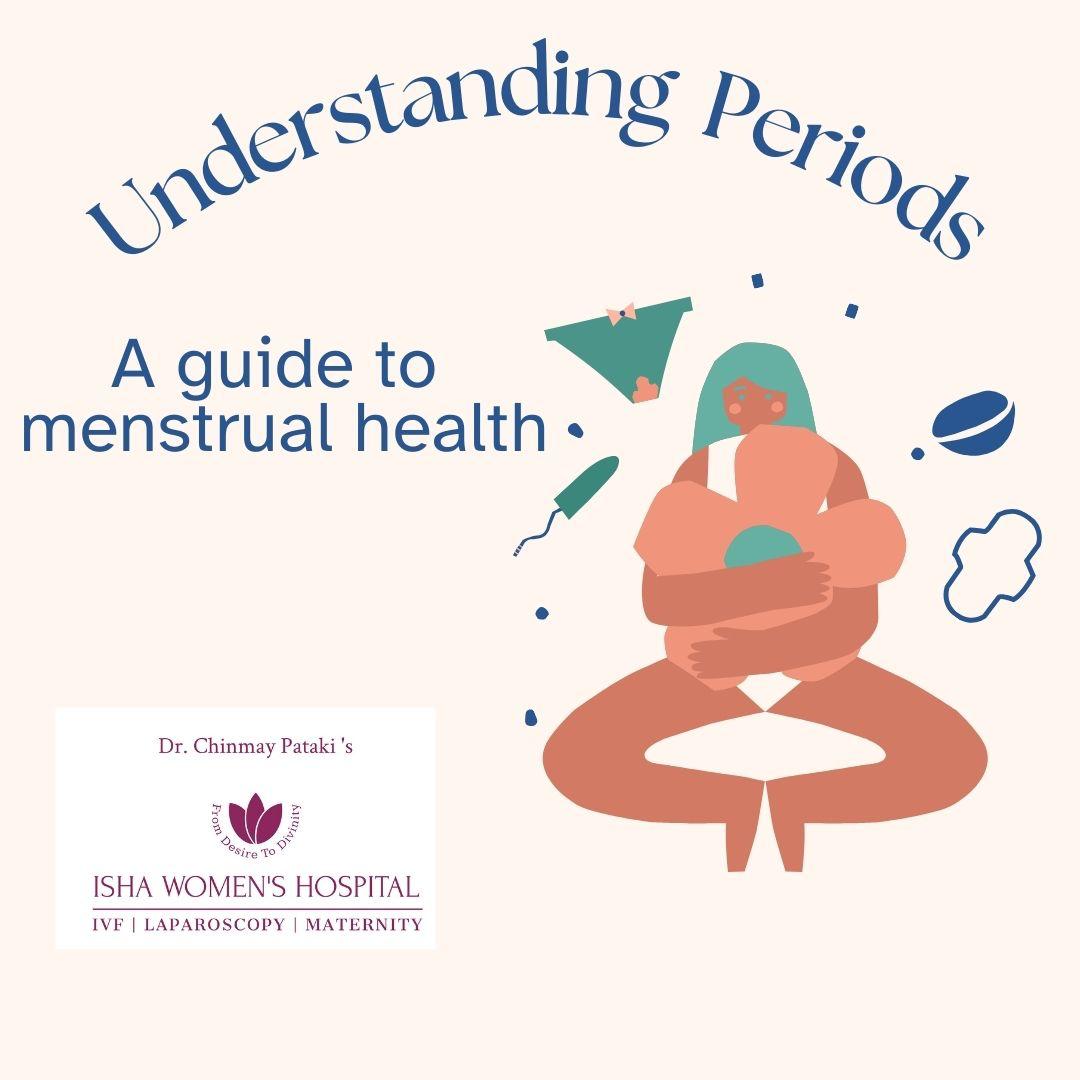Understanding Periods: A Guide to Menstrual Health

What Are Periods?
The first period, called menarche, typically occurs between the ages of 10 and 15, and the cycle continues until menopause, which generally happens between the ages of 45 and 55.
Phases of the Menstrual Cycle
The menstrual cycle, typically 28 days long, is divided into four phases:
- Menstrual Phase (Days 1–5)
This phase marks the start of your period. The uterine lining sheds, resulting in bleeding. - Follicular Phase (Days 1–13)
The body prepares for ovulation as the ovaries stimulate follicle growth, and estrogen levels rise. - Ovulation Phase (Day 14)
Around the midpoint of the cycle, an egg is released from the ovary. This is the most fertile phase of the cycle. - Luteal Phase (Days 15–28)
After ovulation, the body produces progesterone to prepare the uterus for a potential pregnancy. If fertilization doesn’t occur, hormone levels drop, and the cycle restarts.
- Regular cycles lasting 21–35 days.
- Bleeding that lasts 3–7 days.
- Manageable symptoms like mild cramps or bloating.
Common Menstrual Problems
- Irregular Periods: This may be caused by stress, hormonal imbalances, or medical conditions like PCOS.
- Heavy Menstrual Bleeding: Known as menorrhagia, this could be a sign of fibroids, or endometriosis.
- Painful Periods: Dysmenorrhea, or severe cramps, may indicate underlying conditions such as endometriosis or pelvic inflammatory disease.
- Absence of Periods: Amenorrhea may result from lifestyle = or medical conditions like PCOS or thyroid issues.
If you are experiencing any of the following symptoms such as:
- Heavy bleeding lasting less than 2 and more than 7 days.
- Severe pain disrupting daily life.
- Irregular or missed periods.
- Unusual symptoms like fatigue, dizziness, or abnormal discharge
Frequently Asked Questions (FAQs)
Answer: The menstrual cycle is a natural monthly process where the body prepares for pregnancy. If pregnancy doesn't occur, the uterus sheds its lining as a period. A typical cycle lasts 21 to 35 days, with bleeding lasting 3 to 7 days. Cycle length and flow may vary from person to person.
2. What is considered a “normal” period?
Answer: A normal period includes:
- Bleeding every 21–35 days
- Lasting 3–7 days
- Mild to moderate cramps
- Consistent pattern month to month
If you experience heavy bleeding, missed periods, or severe pain, it may indicate a menstrual disorder and should be evaluated by a gynecologist.
3. What causes irregular periods?
Answer: Irregular periods can result from:
- Hormonal imbalances (e.g., PCOS, thyroid disorders)
- Stress or extreme weight changes
- Excessive exercise
- Chronic illnesses or medications
- Perimenopause
Regular check-ups help detect the cause and guide effective treatment.
4. Can periods affect fertility?
Answer: Yes. Irregular, missed, or very heavy periods can signal ovulation issues, hormonal problems, or structural conditions like fibroids—all of which may affect fertility. Maintaining a healthy menstrual cycle is important for reproductive health.
5. How can I take care of my menstrual health?
Answer:
- Track your cycle with apps or calendars
- Eat a balanced diet and stay hydrated
- Exercise regularly but moderately
- Manage stress and get enough sleep
- Seek medical help for any abnormal symptoms like extreme pain, heavy flow, or missed cycles
At Isha Women’s Hospital, we provide personalized care for menstrual health at every stage of life.
Conclusion
Understanding your period is the first step towards better health. Whether you’re dealing with menstrual irregularities or planning for pregnancy, Isha Women’s Hospital is here to support you.
Schedule a consultation today, with our team to experience the compassionate, expert care that makes Isha Women’s Hospital the best women’s health and IVF centre in Thane.
